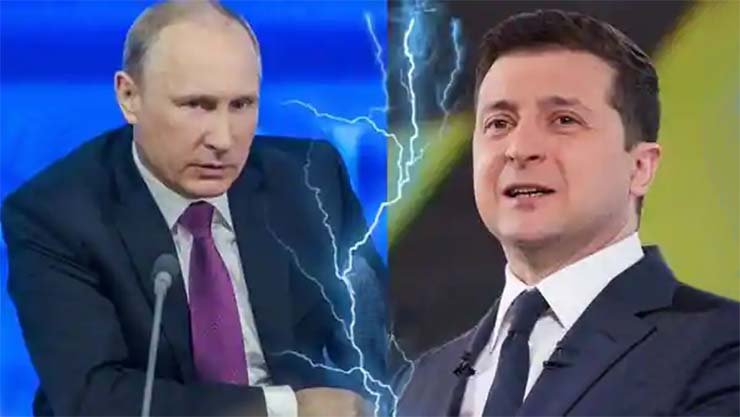
As the Russian onslaught on its neighbour Ukraine enters into its second year and the US-led West has declared the strategic defeat of Russia its primary goal, the Kremlin seems to be preparing for the manoeuvre which could outsmart the Eastern European members of the North Atlantic Treaty Organisation (NATO) who have been hoping to launch a major offensive in spring and summer to crush Putin’s army with the hurriedly mobilised heavy armour and other hardware from their depleting arsenals.
The fierce battle for Bakhmut (Artyomovsk) is seemingly coming to an end with the reported encirclement of a 20,000-strong Ukrainian army group and foreign volunteers with the help of Wagner private military contractors and rapid action Chechen battalion “Ahmat” of National Guards of Russia and DPR, LPR militia.
The special military operation (SMO) launched by President Vladimir Putin on February 24, 2022, has achieved most of its goals and even more than planned territories are under Moscow’s control, the sources claim. “We already control the Sea of Azov, which is now Russia’s internal sea, and gained overland access to Crimea via Donbas. Neo-Nazi Azov Battalion has been virtually crushed, Ukraine’s military infrastructure degraded and Kiev is forced to depend on old Soviet stock clearance by former Warsaw Pact countries and decades-old Leopard tanks supplied by Germany and other European NATO members.”
However, a mix of hardware from NATO could hardly be effectively deployed by Ukraine in March-April due to logistics problems allegedly to counter the Russian “spring offensive” and Kiev’s counter-offensive to liberate occupied territories.
There will be no Russian spring or summer offensive by the army, which even today is providing artillery and air cover to Wagner and militia who are doing the main assault and gradually moving west to fix a frontline with dominant positions. Sources in Moscow believe the World War I-type trench war with intense artillery exchanges will continue with gradual advances till Moscow secures the key towns of Slavyansk and Kramatorsk to ensure assured water supplies to self-declared independent DPR and LPR, now incorporated into the Russian Federation.
On securing a heavily fortified frontline manned by volunteers and militia and cutting Kiev’s supply lines from north to south in Eastern Ukraine, Moscow could halt further advance and freeze the hot phase of its campaign.
“We don’t need extra territories, what will we do with them, pickle them? Let the paramilitary and Wagner fighters along with volunteers man the front, the Army which is even today not on the front could come to rescue in case of Ukrainians counterattack in any particular sector of the frontline,” Defence sources say.
In spite of Western narratives and the fog of war, Kiev is simply unable to achieve any major victories to retake lost territories. President Joe Biden during his Warsaw meeting in February with the leaders of the so-called Bucharest-9 group of East European and Baltic nations shirked from declaring a coalition willing to intervene in Ukraine and urged them to tone down their anti-Russian rhetoric. The US president who has declared his intention to seek reelection will not risk any move which could lead to a direct NATO-Russia conflict.
Washington prodded Germany to send Leopard tanks to Ukraine, but itself has put the deliveries of US MBT Abrams and F-16 fighter jets on the back burner. Meanwhile, there are whispers of a need for diplomatic dialogue with Russia. Chair of Joint Chiefs of Staff US Gen. Mark Milley has on several occasions expressed his opinion that at any juncture a peace deal would have to be negotiated with Russia. Ukrainian president Zelinsky, who sees the liberation of Crimea annexed by Russia in 2014 as the key to the restoration of peace in Ukraine, is reportedly under pressure from his promoters to express readiness for peace talks with the Kremlin, by defining his criteria of a victory in war with Russia. At the same time, NATO experts opine that Kiev is not in a position to retake Crimea from Russia militarily.
The Kremlin on its part is insisting on the recognition and acceptance of realities on the ground by Kiev for a peace deal, virtually accepting its defeat, a condition which will not be met by Zelinsky.
He could be tempted to launch an offensive to improve the situation and boost its military’s morale as accepting a defeat would be suicidal for his political career. Moscow on the other side could accept a frozen conflict impacting the public sentiments and moods in the EU countries already feeling the pinch of high energy prices caused by the rupture of supplies from Russia due to their sanctions.
– The writer is a Moscow-based independent analyst. Views are personal.








